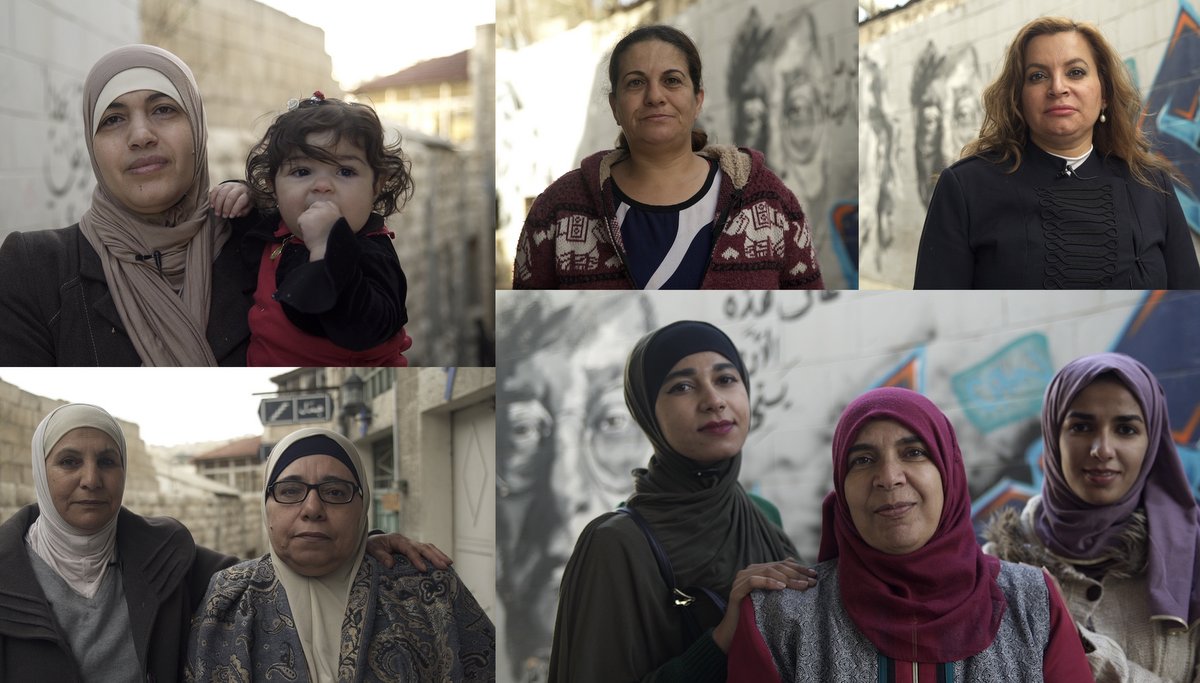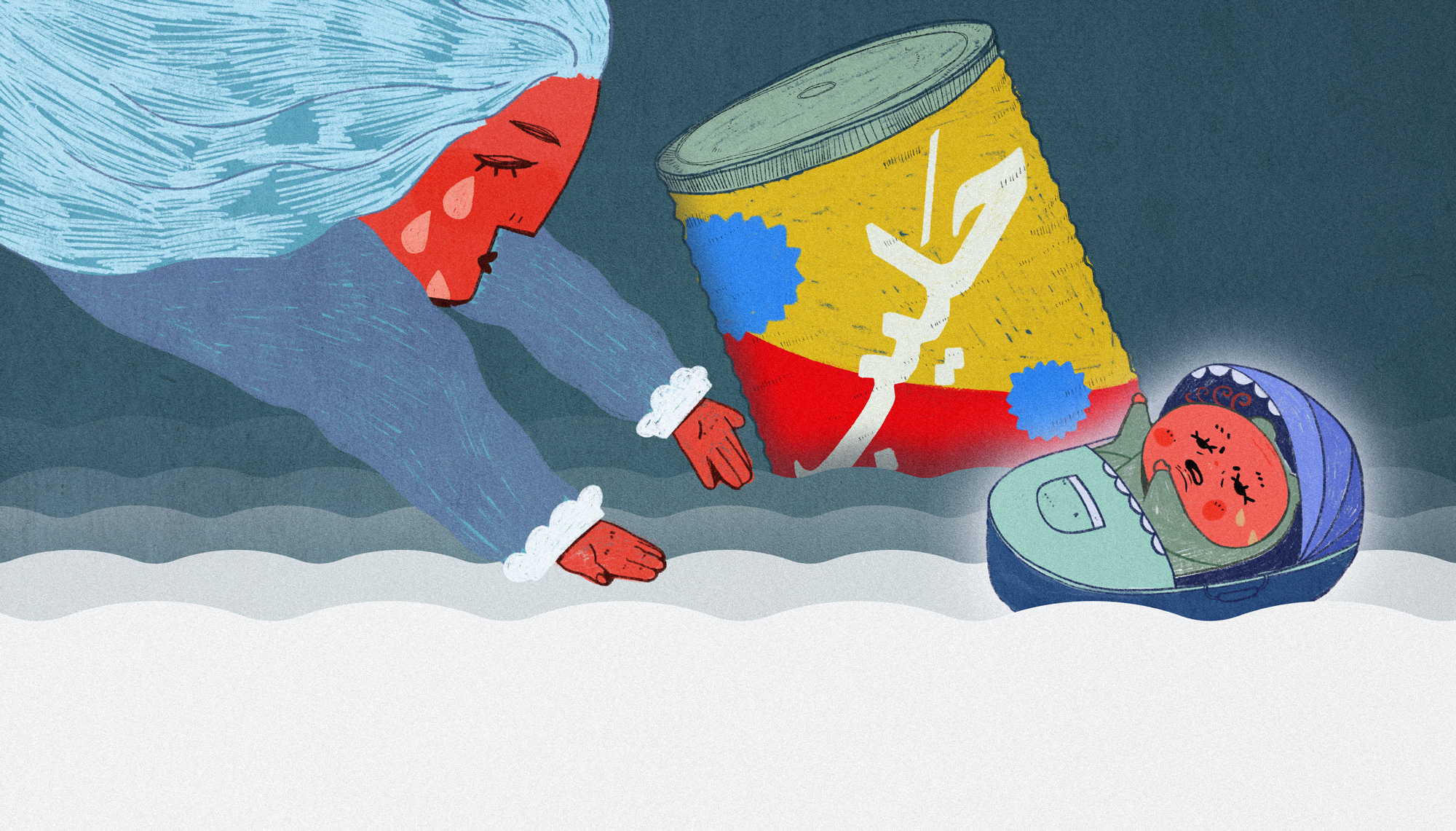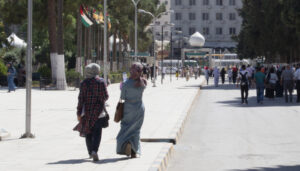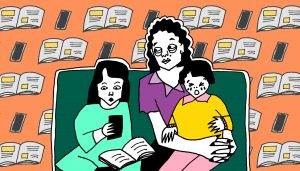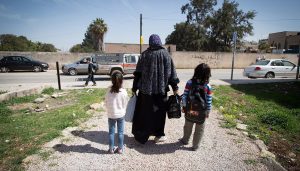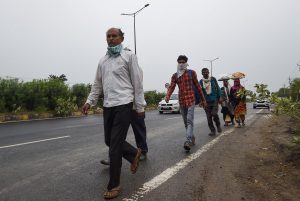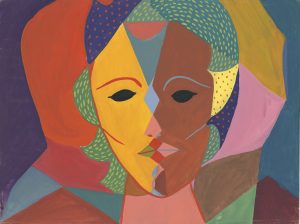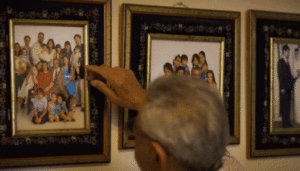By Hiba Zayadin*
At age 60, Samira, a divorced Jordanian mother of four adult children born to a non-Jordanian father, is forced to be the only breadwinner in her household. She lives in a modest house in Irbid with her two sons, their wives, and three grandchildren. On this Mother’s Day, like many others before it, she, alone will be out struggling to make ends meet.
At the heart of Samira’s situation lies a discriminatory Jordanian law that prevents a woman from passing on citizenship to her children on an equal basis with men. In the eyes of Jordan’s government, her children, all of whom call Jordan home, are “foreigners,” with no permanent right to live or work in the country. Her sons face overwhelming obstacles finding a job and working legally, as well as getting health care, education, the right to travel, and more.
“My sons are not alive, they’re like the undead,” Samira said, alluding to the many barriers that prevent them from becoming active members of society in a country they call their own.
While her daughters married Jordanian men and became citizens as per the law, which allows men to pass on citizenship to both their children and up to four wives, Samira’s sons struggle to access the basic rights and services necessary to lead a dignified life and almost completely depend on their mother for support.
“We just want to live,” she said, explaining that her meager earnings are not enough to provide for two young families and herself. “When it comes to food, to [health care] treatment, to work, to shelter, we are at risk,” she said.
In 2014, the Interior Ministry said there were over 355,000 non-citizen children of Jordanian women, many of them born, raised, and educated in Jordan. That year, following increased domestic pressure, the Council of Ministers issued a decision purporting to ease restrictions on these children’s access to employment opportunities, public education, government health care, property ownership, investment, and acquiring a driver’s license. It also established a special ID card which would be required to access these six areas.
But, as a forthcoming Human Rights Watch report reveals, Samira’s sons and thousands of other non-citizen children are still suffering from many of the same legal restrictions that hamper their ability to participate in and contribute to Jordanian society. By February 2018, authorities had issued just over 72,000 identification cards, fewer than 20 per cent of the estimated number of non-citizen children of Jordanian women. Even for those who did obtain the identification cards, many reported no discernible improvement in their circumstances. By and large, Jordanian government agencies continue to subject them to the same laws and regulations that govern provision of services for foreign nationals.
In some instances, the discrimination they face leads to a life of near destitution. “Maryam,” a widowed 57-year-old Jordanian mother to five non-citizen daughters, depends almost entirely on aid from humanitarian organizations to provide for herself and her daughters, three of whom are of working age. Her adult daughters are still unable to get permits that would allow them to find legal, let alone gainful, employment.
“Why must I continue to accept charity when I have five able-bodied girls who can work and help out?” she said, “We haven’t benefitted at all [from this decision].”
Even if applied effectively, the announced reforms still leave in place a clearly discriminatory system that contradicts Jordanian officials’ rhetoric on women’s status as well as the 2016 10-year national plan on human rights. The plan calls for changes in laws, policies, and practices that contravene the constitution and international law.
Jordan’s law on nationality is one such piece of legislation. By only granting men the right to confer nationality to their children and spouses, it treats Jordanian women as second-class citizens and effectively punishes those of them who choose to marry non-Jordanians.
“Help me understand,” said Samira. “I am Jordanian. I give my country everything I am asked to give it. I invest in it, I work in it, I am lawful, I pay my bills. I do everything just like any other citizen. Just like any man. So why won’t the country give me my rights. My dignity.”
Jordanian government officials opposing legislative reforms repeatedly cite political and demographic considerations as justification. But the Jordanian government needs to recognize that these arguments, based solely on grounds of the Jordanian parent’s sex, are not only highly specious in fact but inherently discriminatory.
Jordan prides itself as a “model” for the region on a variety of issues, including human rights. In 2016, for example, based on a commitment it made to reduce barriers to the legal employment of refugees, Jordan became the first country in the Arab region to facilitate issuing work permits for Syrian refugees. Jordan was also the first country in the region to extend to domestic workers the same labor legal protections available to other workers.
But on the citizenship issue, Jordan is falling well behind other Arab countries, including Algeria, Egypt, Morocco, Tunisia, and Yemen. This blatant discrimination should have no place in our country, especially when it causes so much pain and economic hardship to mothers and to their children, who consider themselves as Jordanian as their neighbors, their classmates, their cousins. The Jordanian government should overhaul these counterproductive policies so that by next Mother’s Day, Samira can celebrate no longer being the sole breadwinner in her family.
—-
*Hiba Zayadin is the Jordan research assistant at Human Rights Watch and author of an upcoming report on Jordan’s discriminatory citizenship law.
